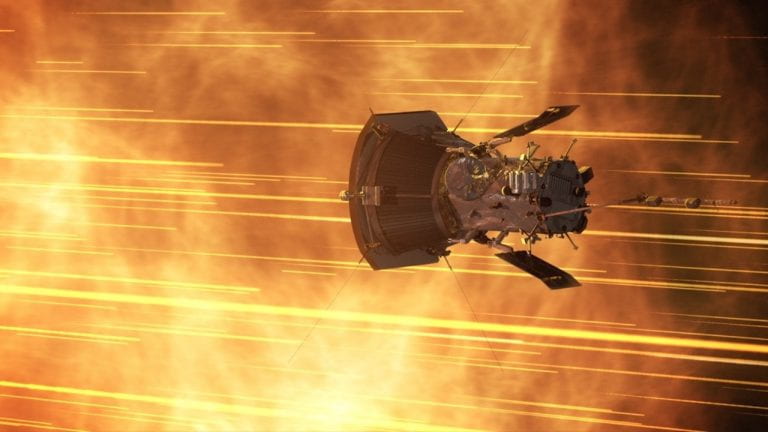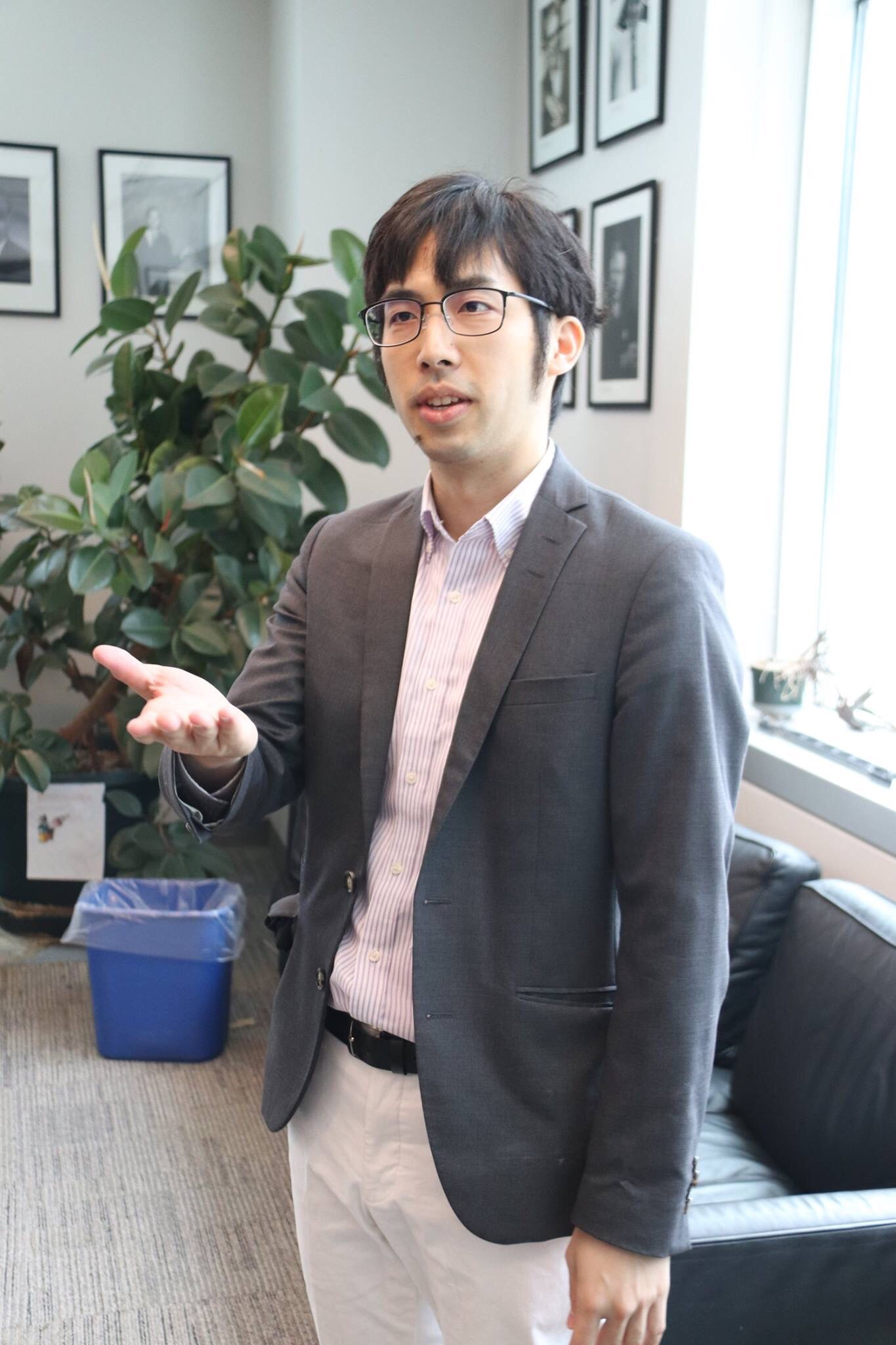UCI physicist proposes new experiment to detect dark matter in our solar system

NASA’s Parker Solar Probe ventured to within 5.3 million miles of the sun’s surface in June. The mission has served as an inspiration and proof of concept for researchers at UCI, the Kavli Institute and University of Delaware who want to deploy a spacecraft between the sun and Mercury. Equipped with atomic clocks, the probe will be used to find evidence of dark matter in our solar system.
Irvine, Calif., Dec. 12, 2022 — Yu-Dai Tsai, a particle physics and cosmology researcher at the University of California, Irvine, has been eyeing a region between Mercury and the sun as a potential hot spot for dark matter detection.
In a paper appearing in Nature Astronomy, Tsai and his collaborators at the Kavli Institute for the Physics and Mathematics of the Universe and the University of Delaware proposed the Space Quantum mission. SpaceQ, as it is called, involves the positioning of atomic clocks on a spacecraft in the inner reaches of the solar system to help find particles that have eluded researchers over decades of experiments and attempts at observation.
“Dark matter has gravitational effects on galaxy dynamics and evolution; we just have yet to understand its particle nature and other influences,” said Tsai, a postdoctoral fellow in UCI’s Department of Physics & Astronomy. “Atomic clocks on a spacecraft launched to a region between the sun and Mercury may give us a better chance in detecting dark matter directly.”
Ultralight dark matter particles are expected to exhibit wavelike properties and have very small masses. They are thought to be capable of inducing oscillations in other fundamental particles, such as electrons. They’re also anticipated to cause perturbations in the very forces of nature, including the electromagnetic force. The researchers are confident that the highly precise atomic timepieces onboard a satellite close to the sun have the sensitivity to measure these slight changes.
The placement of the mission close to the sun is a new angle to find the elusive dark matter, according to Tsai.
“In principle, the density of dark matter is variable, depending on the region in which it exists,” said Tsai. “Models have led us to consider that there could be a preponderance of dark matter when we get closer to the sun, so our measurements here will be of higher sensitivity.”
Tsai added, “Dark matter is one of the most important remaining mysteries in astronomy and cosmology, given its unknown and elusive nature. If we could find dark matter and understand its properties, we can understand the evolution of our universe and understand many astrophysical measurements better, including the velocity distribution of these objects on a small scale, ranging from small galaxies to galaxy clusters.”
Tsai’s collaborators in this study were Joshua Eby, a project researcher at the Kavli Institute for the Physics and Mathematics of the Universe, and Marianna Safronova, a professor at the University of Delaware. The researchers received financial support from the National Science Foundation and the Simons Foundation, and previously relied on the resources of the Fermi National Accelerator Laboratory, a U.S. Department of Energy Office of Science user facility.

About UCI’s Brilliant Future campaign: Publicly launched on Oct. 4, 2019, the Brilliant Future campaign aims to raise awareness and support for UCI. By engaging 75,000 alumni and garnering $2 billion in philanthropic investment, UCI seeks to reach new heights of excellence in student success, health and wellness, research and more. The School of Physical Sciences plays a vital role in the success of the campaign. Learn more by visiting https://brilliantfuture.uci.edu/uci-school-of-physical-sciences.
About the University of California, Irvine: Founded in 1965, UCI is a member of the prestigious Association of American Universities and is ranked among the nation’s top 10 public universities by U.S. News & World Report. The campus has produced five Nobel laureates and is known for its academic achievement, premier research, innovation, and anteater mascot. Led by Chancellor Howard Gillman, UCI has more than 36,000 students and offers 224-degree programs. It’s located in one of the world’s safest and most economically vibrant communities and is Orange County’s second-largest employer, contributing $7 billion annually to the local economy and $8 billion statewide. For more on UCI, visit www.uci.edu.
Media access: Radio programs/stations may, for a fee, use an on-campus ISDN line to interview UCI faculty and experts, subject to availability and university approval. For more UCI news, visit news.uci.edu. Additional resources for journalists may be found at communications.uci.edu/for-journalists.
